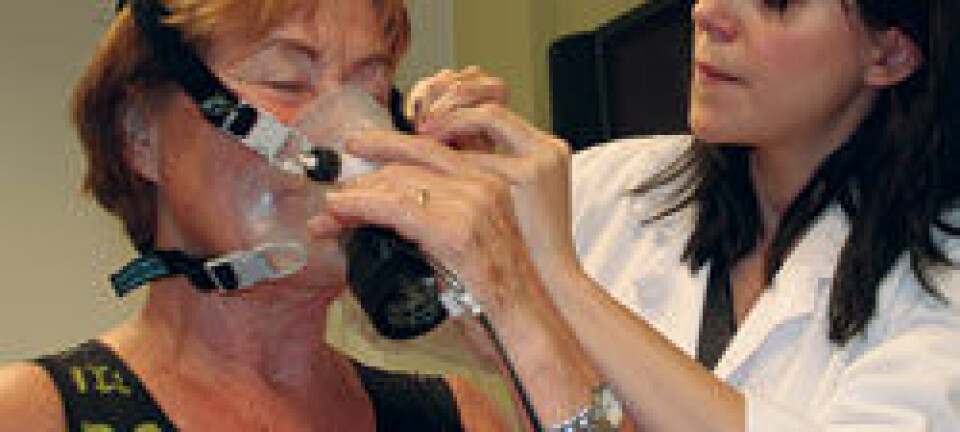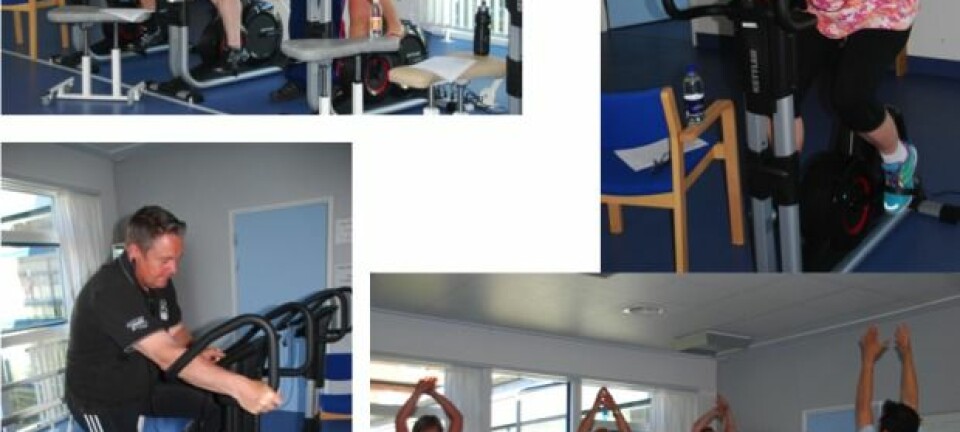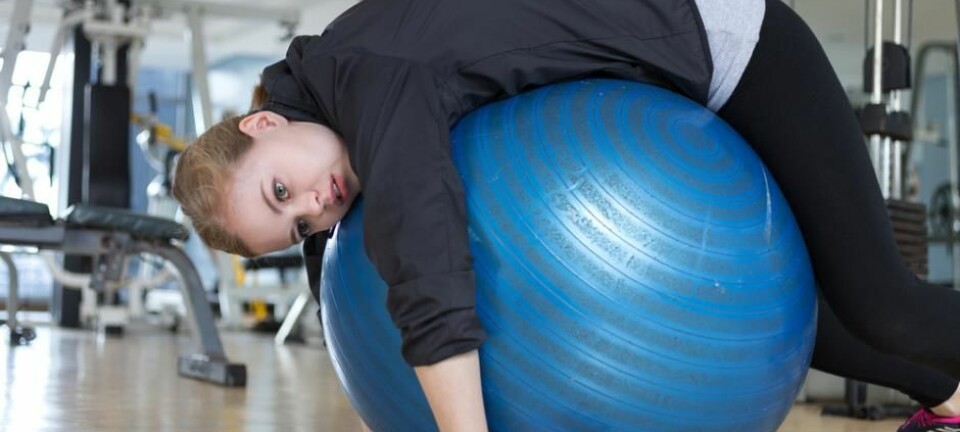
Scientists: Exercise can fight erectile dysfunction
Exercising several times a week can stave off erectile dysfunction among men. A new study outlines how much exercise it takes.
Exercise is good for the heart, blood pressure, joints, muscles, and improves your mood.
If this small selection of benefits from walking, running, or swimming, were not enough, then you can add improved erectile function among men who live a sedentary lifestyle, are overweight, suffer from atherosclerosis, or have high blood pressure.
These are the conclusions of a new study where scientists have reviewed almost 2,000 scientific studies published between 2006 and 2016.
“It’s important that men receive this information. Many men with high blood pressure or heart problems, for example, also suffer from erectile dysfunction. And here’s something they can do about it themselves without needing to go to the psychologist or look at their relationship with their partner, which some men find difficult,” says lead-author Helle Nygaard Gerbild, PhD student from the Research Unit of General Practice, Institute of Public Health at the University of Southern Denmark.
“Exercise improves function whether you want to prevent erection problems or whether those problems are just starting,” says Gerbild.
Read More: Ibuprofen can damage men’s endocrine system
The more exercise the better
The conclusion builds upon trials of moderate to high intensity exercise. Moderate intensity is the equivalent of a brisk walk. High intensity exercise is indicated by sweating and shortness of breath and could be anything from cycling to work, cross country skiing, or any other activity you enjoy.
The new review indicates that the more exercise you do, the greater the effect. And it becomes more effective, the harder you push yourself.
“We can’t see any limit. Perhaps, you can’t have too much of a good thing,” says Gerbild.
The hard facts could provide additional motivation to do the exercise that doctors are perhaps already recommending to patients suffering from obesity, atherosclerosis, cardiac problems, or other conditions where the blood vessels do not work as well as they should.
“Perhaps some men will be more motivated to know that they can improve their erectile function, sexual health, and quality of life, rather than just being told that they can live longer,” says Gerbild.
Read More: Obesity can have a negative effect on sperm quality
Not only a longer life but also better sex
The results have surprised other scientists who describe it as a thorough and substantiated study, which clearly shows physical activity improves erectile problems among men.
According to Professor Bente Klarlund Pedersen from the University of Copenhagen and Ellids Kristensen, doctor and research scientist at the Sexological Clinic in Copenhagen, these conclusions are supported by known mechanisms that can explain the link to erectile dysfunction:
- Physical activity makes the blood vessels more elastic, allowing more blood to flow to the sex organs.
- Physical activity stimulates the body’s production of nitrogen oxide, allowing the blood vessels to expand. This is essentially just what the popular medicine, Viagra, does.
With this in mind, the conclusions should lead to new treatments for impotency, says Pedersen, head of the TrygFondens Centre for Active Health at Rigshospitalet, Denmark.
Read More: Researchers are looking for young impotent men
Exercise should be prescribed as a treatment
“We knew that physical activity reduces the risk of erectile dysfunction, but here we see clearly that it could also be a form of treatment. This makes sense because when you create better flow through the blood vessels, you are actually treating the very cause of erectile dysfunction. So I think that this study could very well lead to a treatment,” she says.
Kristensen expands on this.
”I think that we should work with the least invasive treatment, and what we know is the healthiest choice. Now that we know the degree to which exercise improves our health, I think we should focus on this in the first instance instead of medical treatment,” says Kristensen.
Read More: Escape the exercise doldrums with fitness apps
So how much should you exercise to see an effect?
The question is how much exercise you need to do before it has an effect. This was what the scientists asked themselves when they first began to review the published literature.
From their review, Gerbild and colleagues can recommend a 40 minutes workout, four times a week over a period of six months.
However, Pedersen and Kristensen are doubtful that such a precise conclusion can be drawn without further research. The study indicates that intense exercise has an effect on erectile dysfunction, but whether that means 30, 40, or 50 minutes of training three or four times a week is something that should be studied further, they say.
Read More: Marriage reduces testosterone in men
More exercise than official recommendations
Gerbild agrees, but stands by the recommendation as a goal for people looking to improve erectile function.
“We chose to make the cut there because we could see an effect when people trained on average a little over the half hour exercise recommended by the Danish Health Authority. No doubt it also helps to follow the official recommendation for exercise, but if you want to solve problems or maintain the beneficial effects for impotency, then you probably need to do a little more,” she says.
Gerbild expects this new recommendation to ease the symptoms of impotency, such that men who suffer severe erectile dysfunction can expect to see an improvement, while the problem could disappear entirely among men who suffer only mild problems.
It is still a rough guide at this stage, but it will be refined by future research, says Gerbild. For example, future research should consider whether exercise is particularly beneficial to certain groups of patients, and whether the stage of the disease has any effect on the benefits of exercise, she says. For now the results only apply to a general picture of men suffering from erectile dysfunction.
Read More: People exercise less when they live next to noisy traffic
Outside help needed to maintain fitness routine
The study also concludes that training should be supervised, since the men involved all received professional help to adapt their exercise regimes into their daily lives and to keep their motivation up.
Moreover, there is no evidence to suggest that patients will maintain an exercise regime based solely on the recommendation of their doctor.
Patients could seek help from a physiotherapist who understands the disease, or sign up for a team sport such as football, which has also been shown to be particularly beneficial for health.
Regardless, it is important to remember that exercise can improve erectile dysfunction as long as you maintain the exercise regime. Falling back into old habits will erase any of the benefits established by regular exercise and risks developing further erectile problems, says Gerbild.
---------------
Read more in the Danish version of this article at Videnskab.dk
Translated by: Catherine Jex












